- Home
- Daphne Du Maurier
The Flight of the Falcon Page 10
The Flight of the Falcon Read online
Page 10
I put my hand on the garden door and entered. Nothing had changed. The single tree dominated the small enclosure as it had always done, though the grass was closer trimmed than in our day. I walked the short flagged pathway to the door and rang the bell. The music ceased. A sense of schoolboy panic came upon me. I nearly dropped the books before the door and fled. I heard, as I had heard a hundred, a thousand times before, footsteps descending the stairs. The door opened.
“Signora Butali?”
“Yes.”
“Forgive me for disturbing you, signora. I have brought you the books you asked for from the palace library.”
There is a picture in the audience room of the ducal palace known officially as the “Portrait of a Gentlewoman,” though my father called her the Silent One. The face is grave, withdrawn, the dark eyes look out upon the man who painted her with indifference, some say disapproval. Aldo had it otherwise. I remember him arguing with my father that the Silent One had hidden fires, and that the mouth, supposedly so pursed, deceived the watcher. Signora Butali might have posed for that same gentlewoman. Her beauty was of the sixteenth century, not ours.
“Was it you I spoke to on the telephone?” she asked, and, taking the answer for granted, added, “It’s good of you to come so soon.”
She put out her hand for the books, but I was looking past her to the hall. The four walls were the same, but that was all. The alien shapes of chairs, not ours, and a tall mirror seemed to alter the perspective. My father, fond of reproductions of his favorite pictures at the palace, used to display them in abundance, doubtless a dated fashion, but because of this we came to know them well. Today there was but one picture hanging in the hall, and that contemporary—glazed fruit, too large, splurging beside a sheet of music. The staircase wall leading to the floor above, white in our time, was now dove gray. These things I perceived in a single flash, and with it came unreasoning resentment that anyone should dare to walk into our home and so despoil it to suit their taste, disturbing, as it were, the layer of habit underneath. Had the walls and ceilings that knew us no feeling in the matter? Must they stay dumb?
“Excuse me, signora,” I said, “I did not come only at your request, but because I felt myself drawn to the house. I passed here yesterday and heard the piano. Being fond of music I stayed to listen. At that time I did not even know that this was the Rector’s house—they told me later at the library. When you asked for the books this morning…”
Like the gentlewoman in the portrait, the mouth remained unsmiling, but the eyes softened. “You decided that this was your chance,” she interrupted.
“Frankly, yes,” I said.
I put the books into her hands. Once again my eyes traveled up the stairs. The last time I descended them I was running. My mother was calling from the garden, holding her traveling case, which she handed to the Commandant’s orderly. The staff car was waiting in the via dei Sogni.
“Do you play yourself?” asked the signora.
“No. No, I never had the gift. But yesterday… yesterday you were playing, I believe, the ‘Arabesque’ of Debussy, which God knows can be heard often enough from any radio station, but somehow it sounded different. It brought back memories of childhood and old forgotten things, why, I can’t say… nobody played the piano in our family.”
She looked at me gravely, as though considering a prospective pupil, and then she said, “If you can spare the time, come upstairs to the music room and I’ll play the ‘Arabesque’ for you.”
“Spare the time?” I repeated. “It doesn’t concern me whether I can spare the time or not. Can you?”
Once again the eyes softened. Even the mouth relaxed. “I would not invite you in if I could not,” she answered. “It’s early anyway. I don’t expect my next pupil until three.”
She closed the door, and leaving the books on a chair in the hall led the way upstairs, and so directly into my mother’s bedroom. This was transformed. I recognized nothing. It was just as well, because as I entered I expected to see the tumbled double bed with all the sheets overturned, as they had been on the day we left, the wardrobe with its doors opened and the shelves awry, discarded clothes, unwanted by my mother, left to hang, tissue paper on the floor, the breakfast-tray with the cold dregs of coffee.
“I love this room,” said the signora. “I find it peaceful. As soon as we came here I told my husband, ‘This is where I shall have the piano.’ ”
The walls were green. The chairs, stiff-backed, were padded in some striped material. The floor had a high polish. Another contemporary picture hung upon the wall, this time of monstrous sunflowers. The signora wandered to the piano, which stood on the exact site of my mother’s double bed.
“Smoke if you wish,” she said. “It doesn’t worry me. Now, the ‘Arabesque.’ ”
I went and stood by the window, looking down through the branches of the tree to the garden below. The tree had spread. The branches stretched like wings, and nearly touched the walls. The ball, if it was still there, was deeply hidden.
The ripple of the music started, the rapture and the pathos and the pain. The hot July sun baked the flagstone path, and the orderly’s feet rang out as he marched backwards and forwards for the luggage. Marta was at Mass in San Donato. “Hurry… hurry…” called my mother, “the Commandant won’t wait.” I had to find the snapshot of Aldo. Aldo, before he was shot down. Aldo in his uniform, wearing his pilot’s wings.
“Come without it. Marta can send it on.”
“No. I have it. It will go in my pocket.”
And so running down the stairs. And so also the signora, higher, higher up the scale, and down, repeating the phrase, once more, again, carelessly, gaily. There was nothing emotional in an “Arabesque.” Unless, like the listener, you were a courier, a charioteer, on and on and endlessly on, flying from the present to the past.
She said, “I was playing Chopin when you rang the bell.”
It could be that we get the death we deserve. That my mother, with her cancerous womb, paid for the doubtful pleasure of that double bed, and that the Commandant, yes, and my father too, surfeited with what they had once had, doomed themselves to ultimate starvation, the one in a Russian, the other in an Allied prison camp. But why the knife for Marta?
I sat down in a chair and stared at Signora Butali. Her piano playing brought her to life, color had come into her too pale face. Here, I supposed, she found release, and was able to forget her sick husband. I studied her dispassionately. My own age, or a few years older. Thirty-five to thirty-six. The age for regret, for sudden love, for drama. The age for opening the door to callers after ten.
The music was interrupted, as yesterday, by the shrill summons of the telephone. She rose from the piano and went to answer it, excusing herself with a glance. I noticed that it was in this room now and that she did not have to run downstairs, as my mother had done.
“Yes,” she said, down the mouthpiece, “yes, I have them.”
Something told me that she was referring to the books. The Rector must be anxious. He also, I surmised, asked his wife if she were alone, for she replied, in the voice one uses when others are present, “No, no, not just now. Call me later.” She replaced the receiver rather quickly.
Following my train of thought, and foolishly, I asked her if the Rector was better. She looked confused, then instantly recovered.
“Ah, yes,” she said, “very much better. I had many things to see to here at home, otherwise I should never have left Rome.”
Did she think I was accusing her of neglect? Perhaps. In any event, I suspected that the brief telephone call, just ended, had not come from Rome.
The spell was broken, and she made no move back to the piano. I had stood up when the telephone rang. Now I glanced at my watch.
“You’ve been very kind, signora,” I said. “You’ve given me much pleasure. Now I must not take up any more of your valuable time.”
“Nor I yours,” she answered. “You must come again. What did
you say your name was?”
“Fabbio,” I told her, “Armino Fabbio. I’m working at the library on a temporary basis.”
“I feel sure they are very glad to have you,” she said. “I hope Signor Fossi will soon recover. Please give my regards to him, and to Signorina Catti.
Already she was walking to the door. The telephone call had destroyed all magic. I followed her out to the landing. She must use for bedroom the room that we reserved for the occasional guest. It looked southeast beyond the via dei Sogni to the precincts of the old monastic buildings, used now as the city hospital. My room had lain beyond.
“Thank you again, signora,” I said.
The smile she gave me was gracious but mechanical.
“It’s nothing,” she answered. “I like to play to anyone who is fond of music.”
I followed her downstairs. When we reached the hall she picked up the books, the action suggesting that she would take them back upstairs with her after I had gone.
“You will find them interesting,” I observed. “That is, if you can read German.”
“I don’t,” she said, leaving it at that.
There was no further excuse for delay. I was a stranger, she had had enough of me. The house, my house, was equally indifferent. I smiled, bowed over her outstretched hand, and left. The door closed. I walked down the flagged path to the garden gate, and so into the street. An old, bent woman walking in the distance, the vanishing skirts of a priest, a dog sniffing at the wall, even the bright day, all of these belonged to the present time, to the Ruffano that was not mine.
They say, in English, that you should kill two birds with one stone. I might as well lay my second ghost hard upon the first. Instead of returning immediately to the ducal palace and the library, I walked downhill towards the oratorio of Ognissanti. The cross-eyed cobbler must be braved in his own domain. Before I reached the corner of the street I saw that a small crowd had collected there. People were leaning out of windows, among them the dour guardian of the oratorio. A car was drawn up short of the steps. A police car. A man and a woman were being bundled inside it. I drew back and waited for it to turn and pass. My view of the car and of the couple within became blocked by the chattering crowd in front of me. The crowd broke up, still talking, gesturing. I turned to one of them nearby, a round-eyed woman carrying a crying child.
“Were they arresting someone?” I asked.
She turned to me eagerly, desirous, like all women in a crowd, of imparting information to a passerby.
“It’s Signor Ghigi and his sister,” she said. “No, they are not being arrested, mercifully for them, but the police have come for them all the same, to identify a body. They say it’s the body of that woman murdered in Rome, it was in the newspapers, and it may be the body of the Ghigis’ lodger, that’s what they say, a woman who had been lodging with them for some months. She used to drink, and she disappeared days ago, saying nothing to either of them, and now they wonder, the police wonder, everybody in the quarter is wondering, can it be the same, can it be poor Marta Zampini?”
She was still talking, the child was still crying, as I turned away and walked back along the street, my heart pounding.
8
I bought a newspaper in the piazza della Vita and stood a moment under the colonnade, searching the pages. There was no mention of the murder. The police had obviously been working on information about missing persons in the provinces, and now they were taking the Ghigis to Rome to identify the body. Or perhaps not even that. Perhaps the police in Rome had sent items of clothing to be recognized, the shawls, the baskets. These would probably be enough.
And then? No nearer to a solution of the crime. No motive for robbery. The police would never find out that someone, just after midnight, had put a note for ten thousand lire into the victim’s hand. By now it was spent, by now it had passed from the thief and murderer to a dozen other hands. The thief and murderer would not be caught. Nor the planter of the note. Both were guilty. Both must carry the burden of that guilt.
When I entered the library the secretary and the clerks had all long returned from lunch. It was mid-afternoon. Everyone stared at me. It was as though they must know I had come from the oratorio of Ognissanti, and my purpose in going there.
Taking no notice, I walked to the bookshelves and busied myself with sorting the remaining German books, but this time without interest. The face of the dead Marta, allowed to lapse into darkness during the past three days, revealed itself once more. It could no longer be denied. The Marta of the past would never torment me, only the huddled drunken figure she had become. Why the sour, stale smell? She who had been clean, fastidious, forever washing, pressing, folding clothes and fresh linen and laying them away in closets? Only two people could give me the answer now—the cobbler and his sister, our ex-cook. They would know. They could recount for me, interminably, with every sordid detail, the disintegration through the years.
It was our fault, of course. My mother’s first, then mine. Living at Turin we could have written. I could have written. Inquiries could have been made. Or later, from the agency in Genoa, I could have contacted Ruffano by telephone, demanded information. I did not do so. Twenty years had passed. Marta had had to disintegrate through twenty years.
Later in the afternoon the telephone rang. Signorina Catti answered it. She spoke for a few moments in a honeyed voice, then put the receiver down.
“Signor Fossi is still unwell,” she announced to the rest of us abruptly. “He will not be back today. He has asked us to carry on until seven o’clock.”
Expostulation came from Toni. “It’s Saturday,” he protested. “Signor Fossi always lets us go by six on Saturday.”
“Perhaps,” replied the secretary, “but that is when he is here himself. Today is different. Signor Fossi is at this moment in bed.”
She turned again to her ledger, and Toni clasped his hands to his belly in mock anguish. “When a man is past forty,” he murmured, “he should restrain his appetite for bodily pleasure.”
“When a man is under twenty-three,” said the secretary, “he should have some respect for his superiors.”
Her ears were sharper than I thought, perhaps her wits too. We returned to our business, but I think all four of us were surprised when shortly before seven the cause of Giuseppe Fossi’s ills walked through the library door. She was wearing a red suit that became her well. Small gold earrings pierced her ears. A dark coat swung from her shoulders. Nodding casually to the secretary, ignoring the two clerks, Carla Raspa strolled across the room and made for me.
“Hullo,” she said.
“Hullo,” I answered.
“How are you doing?”
“I’m doing well.”
“Like the work?”
“It’s a change from tourists.”
“That’s what I thought. You can’t have everything.” She glanced up at the bookshelves, humming under her breath. The secretary, bending over the desk, might have been made of alabaster. “What are you doing this evening?” asked Carla Raspa.
“What am I doing?”
“That’s what I said.”
The eyes, like bitter almonds, appraised my person. I tried to remember what it was, whether bird or reptile, whose lovemaking ended always in the female devouring the male. It was an insect—the praying mantis.
“I have a date with a couple of students from the pensione where I am staying,” I invented promptly. “We’re all eating and then going to the cinema.”
“Which pensione is that?”
I hesitated. “Signora Silvani’s,” I said.
“At 24, via San Michele?” she exclaimed. “Why then, we’re neighbors!”
“I believe we are.”
She smiled. The smile suggested that we were both of us engaged in some conspiratorial game. “Are you comfortable?” she asked.
“Very comfortable. The students are a pleasant bunch. All C and E.”
“C and E! I’m sorry for you, then. You
won’t be able to sleep for the noise. They’re a rackety crowd.”
“They were quiet enough last night,” I told her.
She continued to appraise me. I could see Toni listening from his ladder. “Where are you going to eat?” she asked.
“At the house,” I said. “The food’s very good.” And, to make my alibi the more convincing, I added, “My young friends are called Pasquale, Paolo and Caterina Pasquale.”
She shrugged her shoulders. “I never come in contact with the C and E students.”
It was Toni who let me down. “Did you say the Pasquales?” he asked, zealous to show camaraderie.
“Yes.”
“Then you must have got your date mixed up. They always go home to San Marino on Saturdays. In fact, I saw them depart this afternoon when I was returning from lunch. Bad luck!” He grinned, and crossed the library to fetch his coat, believing he had done me a service.
“Good,” said my pursuer, “that means you’re free.”
I had a momentary vision of Giuseppe Fossi on his bed of sickness, then remembered, with relief, that he was my senior by several years. And it could have been the cooking. I flashed my courier’s smile.
“Yes, I’m free,” I murmured. “We’ll eat at the Hotel dei Duchi.”
She raised her eyebrows. “Why waste your money?” she said. “Anyway, they’ll be closed down for the night by the time we’re ready to eat.”
The remark was ominous. It suggested an exhausting session without even an aperitivo to give appetite. I was not sure I should be equal to the strain. But if the remark was a pleasantry—well, I like to choose my moment for such things, and this was not one of them.
“So?” I questioned.
She allowed her eyes to drift towards the departing clerks and the retreating Signorina Catti, who still hovered by the door.

 Jamaica Inn
Jamaica Inn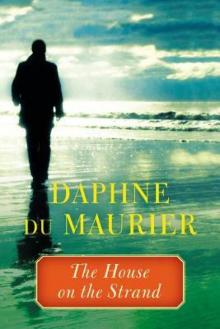 The House on the Strand
The House on the Strand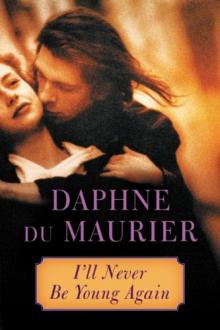 I'll Never Be Young Again
I'll Never Be Young Again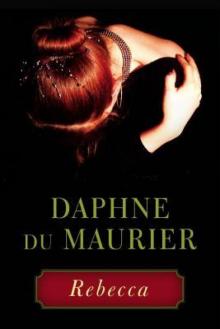 Rebecca
Rebecca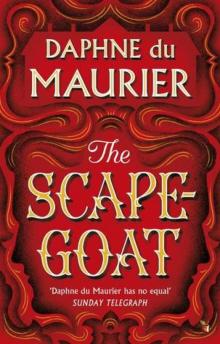 The Scapegoat
The Scapegoat The Birds and Other Stories
The Birds and Other Stories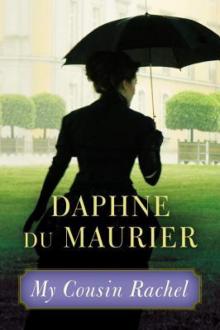 My Cousin Rachel
My Cousin Rachel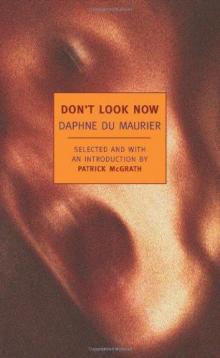 Don't Look Now
Don't Look Now Mary Anne
Mary Anne Hungry Hill
Hungry Hill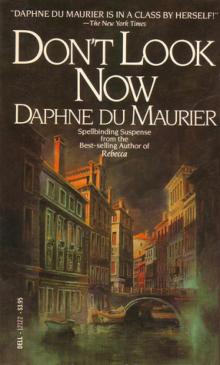 Don't Look Now and Other Stories
Don't Look Now and Other Stories The Loving Spirit
The Loving Spirit Rule Britannia
Rule Britannia The King's General
The King's General The Breaking Point: Short Stories
The Breaking Point: Short Stories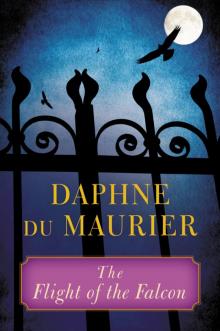 The Flight of the Falcon
The Flight of the Falcon The Apple Tree: a short novel & several long stories
The Apple Tree: a short novel & several long stories The Breaking Point
The Breaking Point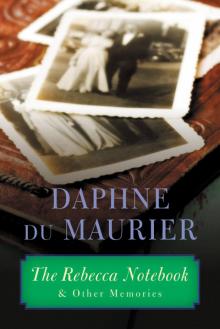 The Rebecca Notebook
The Rebecca Notebook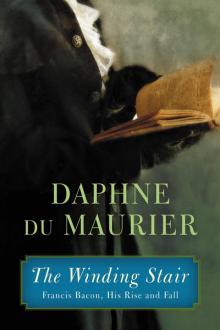 The Winding Stair: Francis Bacon, His Rise and Fall
The Winding Stair: Francis Bacon, His Rise and Fall Not After Midnight & Other Stories
Not After Midnight & Other Stories The Doll
The Doll The Apple Tree
The Apple Tree